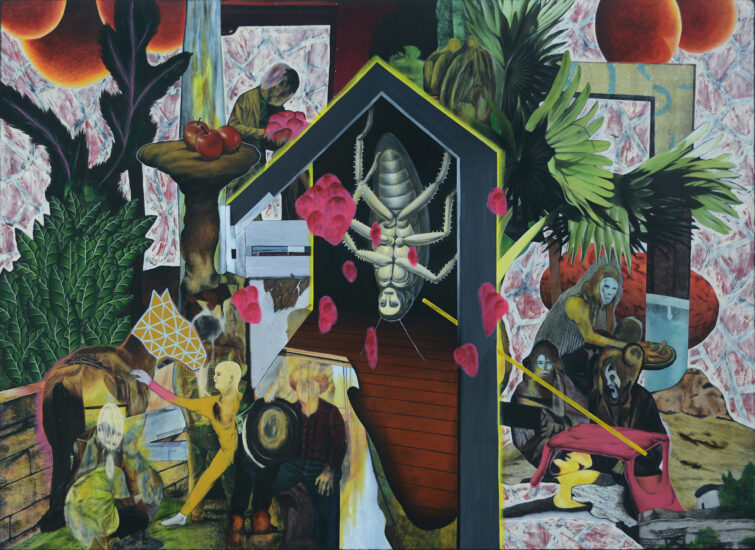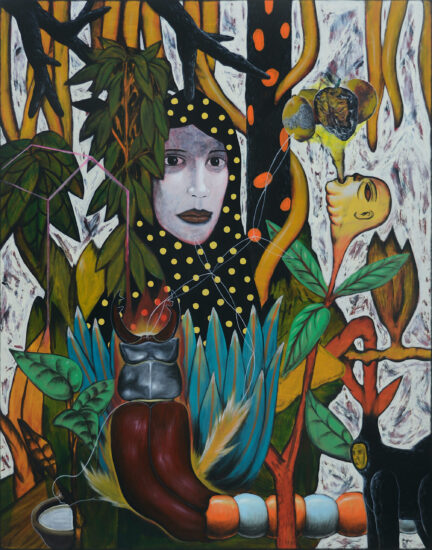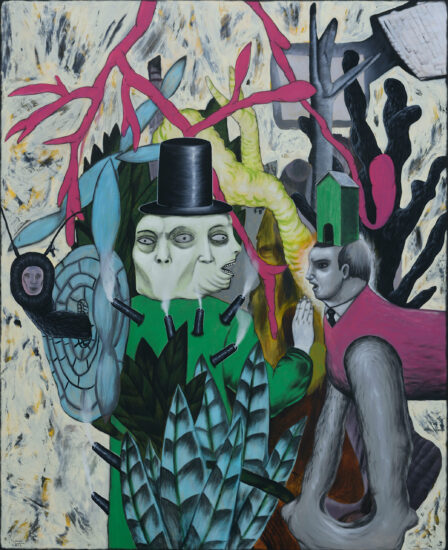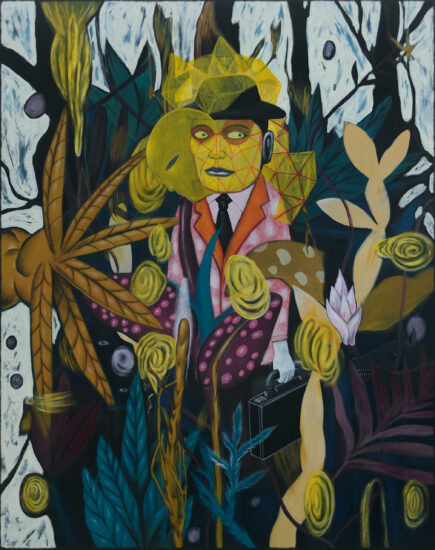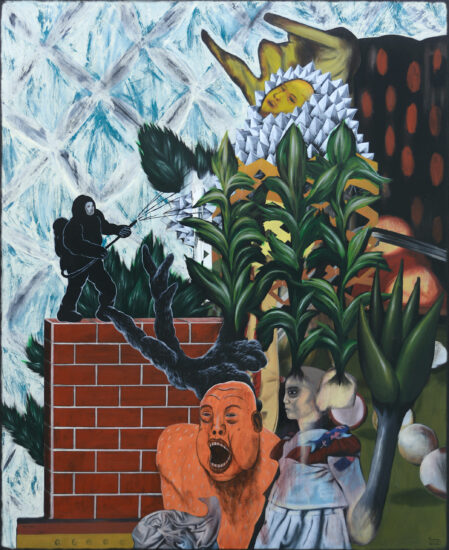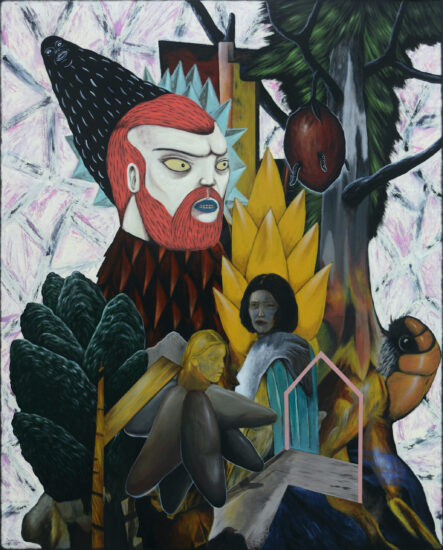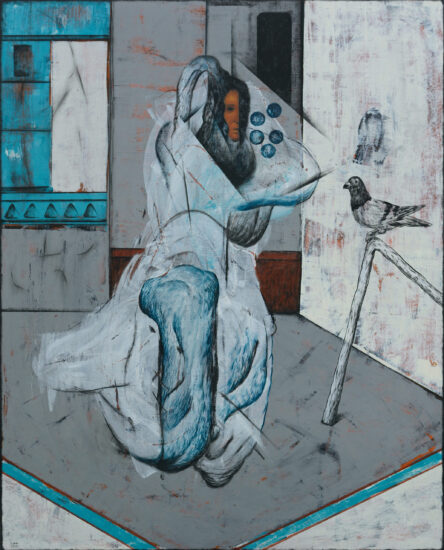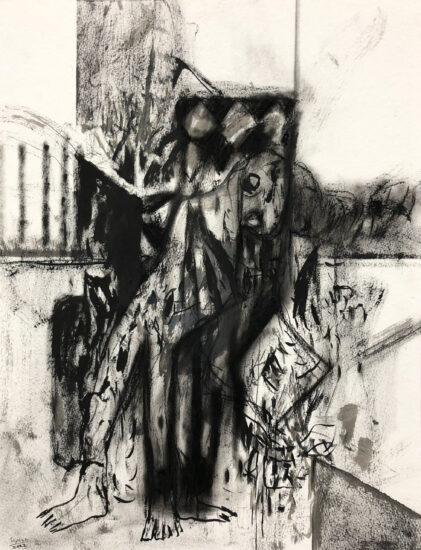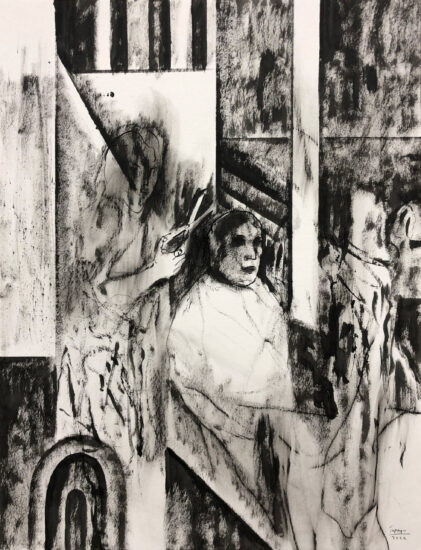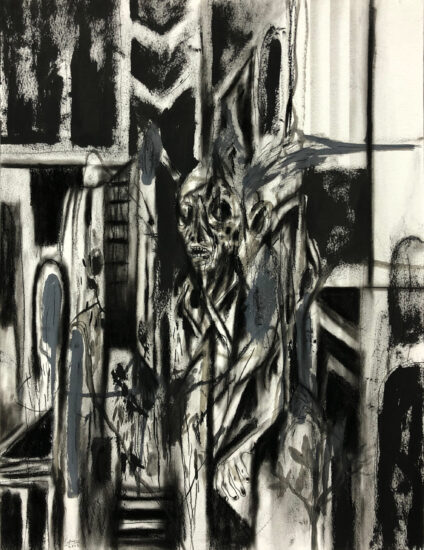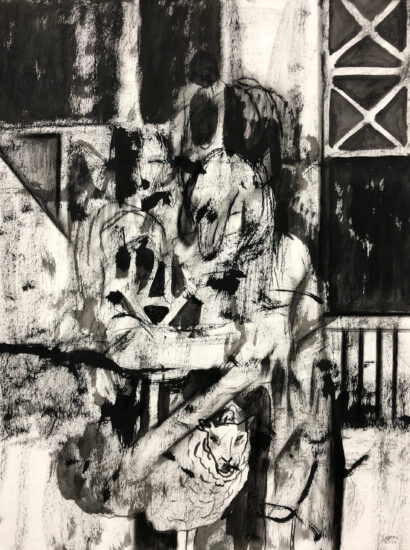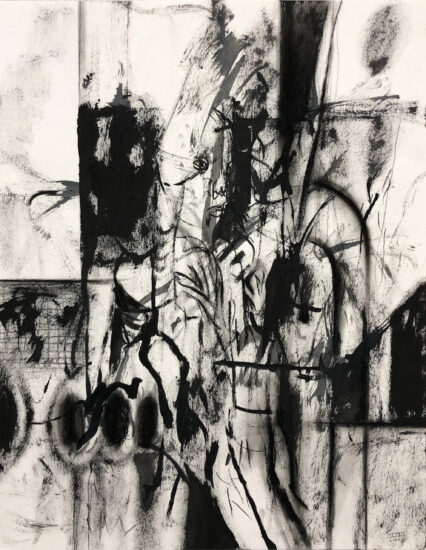Yavuz Gallery is proud to present Animals Moved by Music, Rodel Tapaya’s debut solo exhibition with the gallery.
Celebrated as one of the most important painters in Southeast Asia, Filipino artist Tapaya is known for his large-scale canvases, narrative murals and sculptural installations that evoke the primordial rainforests of indigenous folklore as allegories for the present reality. By forming thought-provoking instantiations of myth and contemporary existence—such as beastly incarnations of gods beside factories and television antennas—his works are both a retelling and a continuation of the oral and pictorial worlds of bygone eras.
In his latest body of work, Animals Moved by Music, Rodel Tapaya plumbs the faultlines through which the terrain of the everyday slides, shifts, and reconfigures. The paintings orbit around mundane transformations centered on private life and its never-ending negotiations with the outside world and its looming threat of contamination as well as its irresistible offer of self-actualization.
The title of the exhibition takes its cue from Franz Kakfa’s best-known novella, Metamorphosis. In it, the protagonist Gregor Samsa, who even transforming into a “monstrous vermin,” remains vulnerable to the seduction of music played by his sister Grete, is not a direct translation of the story, but a springboard to an examination of our contemporary predicament: the maladies of isolation, the terror of venturing out of the domestic space, the restoration of the old familiars. These instances of metamorphosis are conveyed by the characters who dominate the hierarchical scale of the paintings, both visceral and symbolic.
Animals Moved by Music flirts with the parameters of a parable, but offers a direct, undeniable link to our present-day conditions where we continue to reckon with what we have lost and what we have gained. The world-building in Tapaya’s paintings, with their grids and configurations, is one of perpetual reconstruction, as if to say that the invention of being human is never finished but is an amalgamation of a series of constant adjustments that occasionally, gives rise to momentary sparks of revelation.
This exhibition is held in collaboration with Arndt Art Agency.
ABOUT THE ARTIST
Born in Montalban, Philippines, in 1980, Rodel Tapaya grew up immersed in the oral and pictorial tradition of his rural environment situated at the periphery of Manila, one of the world’s largest urban sprawl. As a student at the University of the Philippines, he studied alternative interpretations of supernatural traditions through Professor Damiana Eugenio’s scholarly work. Since then, he devoted his career to painting tableaus that not only illustrate but also reimagine her compilation of Philippine myths and fables.
Tapaya employs the fantastic to depict the coexistence of other modes of being alongside and within the modern present. In his wide-ranging repertoire of mythical beings—Tapaya conceptualizes the fantastic as a form of temporal translation to various points in Philippine History. One writer observes that it “seems as though a conquest is taking place in reverse: it is the forgotten demons, the old spirits and divinities, that reconquer modern, secularized society”.
His smooth application of paint, cramped figurative compositions and mix of decorative surfaces comment on the constructed overlaps of the social, political and environmental issues. The concerns are visible in his palette, which captures both the vibrant locale and the darkness that overcast his figures that appear along the margins—serving as a reminder of the proximity of colonialism’s legacy. Since his earliest exhibitions Tapaya has utilized a range of media; from large acrylic on canvases to an integration of local crafts such as under-glass painting, metalwork, and diorama. His intriguing literary-based visual practice has made him one of the most recognizable names in the Southeast Asian contemporary art boom of the past decade.
